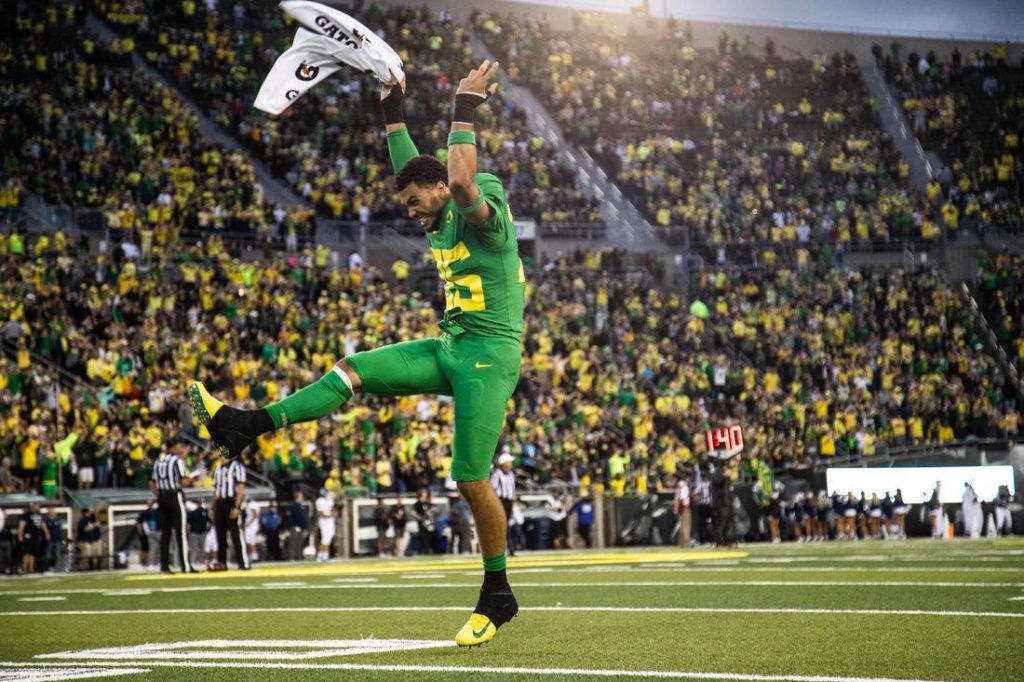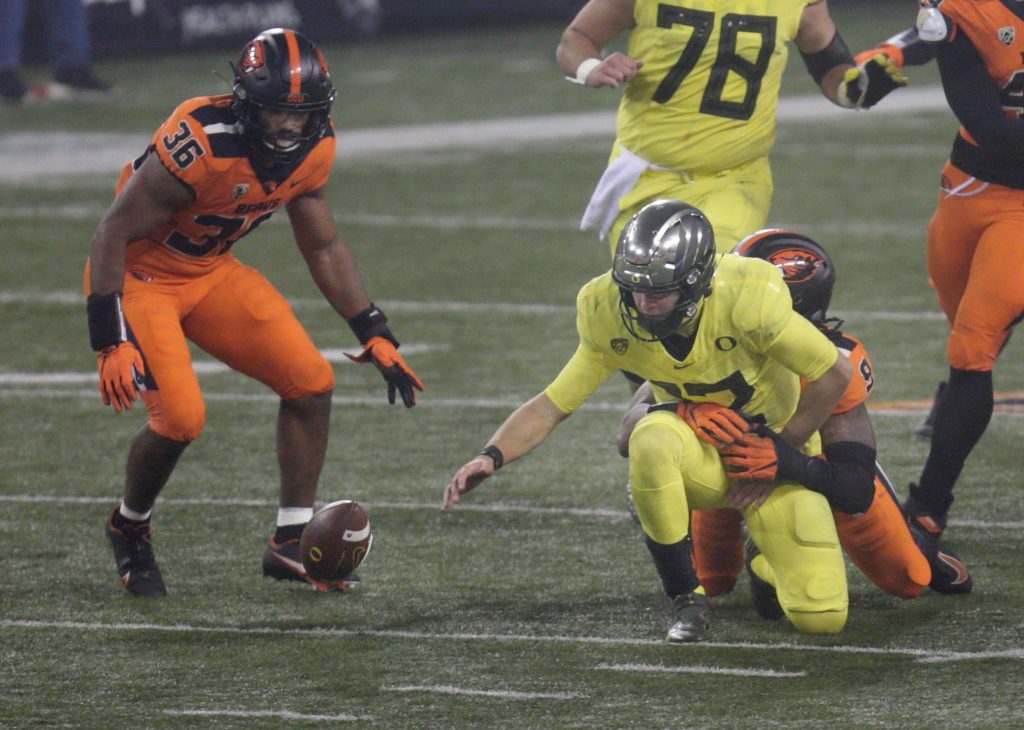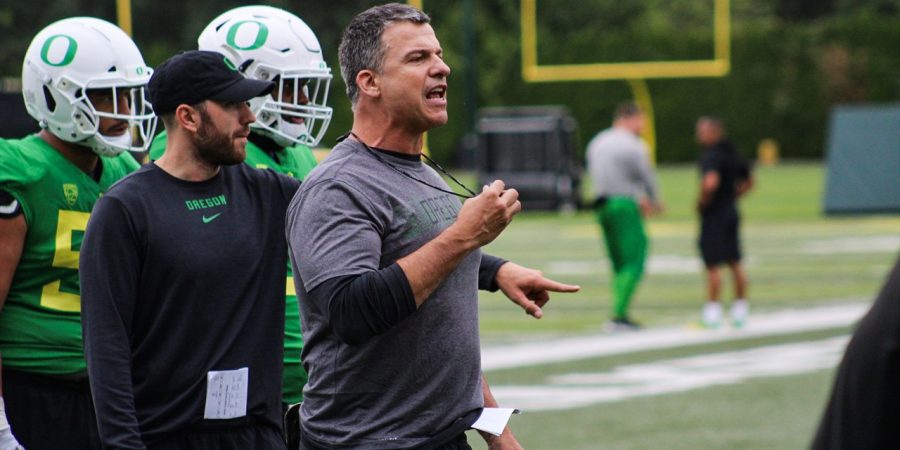The trying nature of the 2020 season can’t be understated.
For every program that elected to participate and has been able to take the field this season, there have been incredible challenges and obstacles to overcome physically, mentally, and oftentimes logistically. It’s a stark reality that every coach and player has had to face and find ways to navigate over, around, and through. And even then, best laid plans can and have been easily foiled by a virus that has proven to be ruthlessly uncompromising in nature.
In some ways, it feels like a minor miracle that the 2020 college football season hasn’t been completely torn asunder by COVID-19. In fact, perhaps all of us should be observing what has taken place this fall through the default lens of gratitude, since it sure beats no football at all. Then again, this is college football we’re talking about, and while fans across the country are no doubt grateful for the season that has taken place thus far, overlooking the spectre of COVID-19 comes easy when offering up critiques and criticisms of the teams we observe on game days.
For the Oregon football program in 2020, the critiques and criticisms have come in abundance. There’s no arguing that Ducks head coach Mario Cristobal and his staff have been excellent in their efforts to maintain the health and well-being of this team during the pandemic, but the play on the field has mostly represented regression over the course of the past five weeks.
A strong performance in the season opener vs. Stanford was followed up by some tense moments on the road at Washington State before the wheels started to squeak loudly at home vs. UCLA. From there, things have fallen apart, as losses in back-to-back weeks at Oregon State and at Cal have exposed this team for its youth and inexperience. Still, despite being the youngest FBS team in the country, it was difficult for even the biggest nega-Duck to envision the extent of the struggles the Ducks have demonstrated this season.

Down six starters from a dominant defense in 2019, the expectation was for Oregon to more or less pick up from where they left off following their Rose Bowl victory over Wisconsin. And why not? After all, the despite losing senior linebackers Troy Dye, Bryson Young, and La’Mar Winston, plus Jevon Holland, Thomas Graham, and Brady Breeze to opt-outs, the Ducks returned virtually everyone along the defensive line, had a promising mix of talent and experience in the secondary, and possessed a linebacker group that while young, is as physically gifted as any group in program history.
Instead, the Oregon defense has served as one of the biggest disappointments in the Pac-12 this season. Heading into Saturday’s game vs. rival Washington, the Ducks currently rank seventh in the conference in total defense (419.8 yards/game), eighth in scoring defense (28.0 points/game), and ninth in both passing defense (235.6 yards/game) and rushing defense (184.2 yards/game). Even more crippling has been Oregon’s inability to turnover opponents, as the Duck defense has failed to force a single turnover in four out of five games this season after being one of the nation’s best teams in this category a year ago. To their credit, a standout performance last Saturday at Cal could perhaps signal a much needed turnaround, but this group’s back is firmly against the wall with the Pac-12 North division title on the line vs. the Huskies.
On offense, the Ducks started the season mostly fashioning themselves as the defense’s antithesis. Despite having to replace Justin Herbert at quarterback and all five members of their starting offensive line from 2019, the Oregon offense exhibited true potency under the direction of first year offensive coordinator Joe Moorhead. Though efficiency has waned at times, the Ducks have demonstrated a knack for generating explosive plays and for putting up points, tallying 35 points or more through their first four contests. However, the relatively minor issues the offense was able to overcome at the beginning of the year have slowly but surely developed into significant problems that full on plague this unit as they prepare to face the Pac-12’s best defense in Washington.

At the beginning of the season, it was written here that Tyler Shough’s growth over the course of the season would be what determined the heights Oregon would reach in 2020. That’s proving to be the case, as the play of the first year starting quarterback has gotten progressively worse in recent weeks, as poor decision-making and nervy play from the pocket have resulted in a cascade of turnovers (and near-turnovers) that have seemingly eroded both the confidence Shough has in himself and the confidence his coaches and teammates have in him as the team’s signal caller. Exacerbating Shough’s woes has been the increasingly disappointing play of the offensive line. After shining the first two weeks of the season by paving the way for 538 yards on the ground, the Ducks have rushed for just 408 yards in the previous three games combined. Last week’s dud of a performance in the second half at Cal underscored just how much the offense, in general, has fallen off in recent weeks, as the Ducks were completely shut out by the Golden Bears in the game’s final two frames.
Where the Ducks go from here, as a collective, feels like anyone’s guess. Though issues such as uninspired play from the defense and turnovers (and lack thereof) have persisted since the season opener, the performance regression of Shough and the offensive line are more pronounced than ever.
As Saturday’s game vs. Washington draws near, so does the contemplative nature of a crossroads moment for this program in 2020. A win clinches the Pac-12 North title for Oregon, sending them to the Pac-12 Championship Game for a second straight season. A loss drops this team to 3-3 on the season, muddying their bowl possibilities while also marking the first time since 2017 that the Ducks have lost three straight games.
Make no mistake, Oregon’s gut check moment has officially arrived and how they respond amidst the upheaval and chaos of a disorienting 2020 season stands to serve as a referendum on the true strength of the culture Cristobal and this team have touted since the end of the 2019 season.
Top Photo: Oregon head coach Mario Cristobal (Scott Boldt/ScoopDuck.com)

